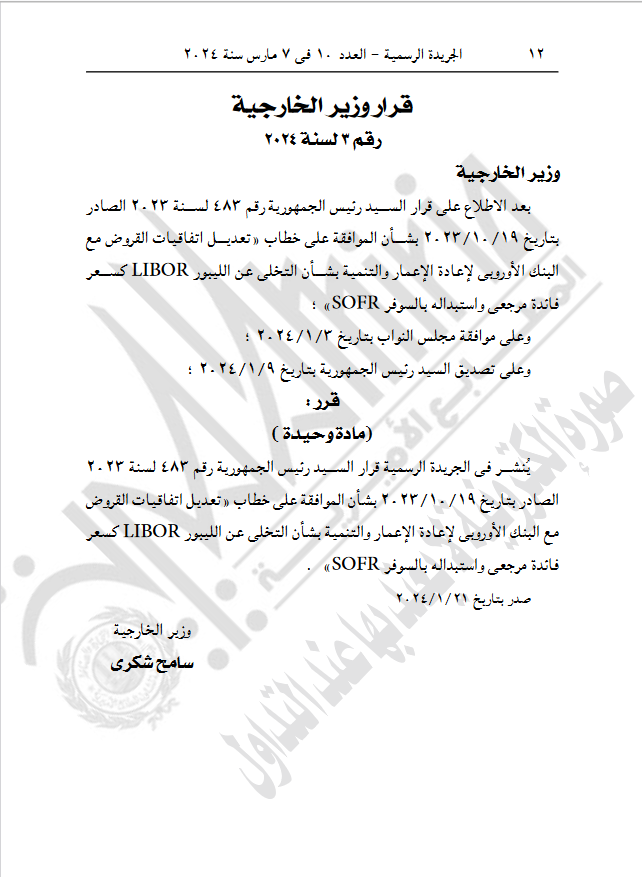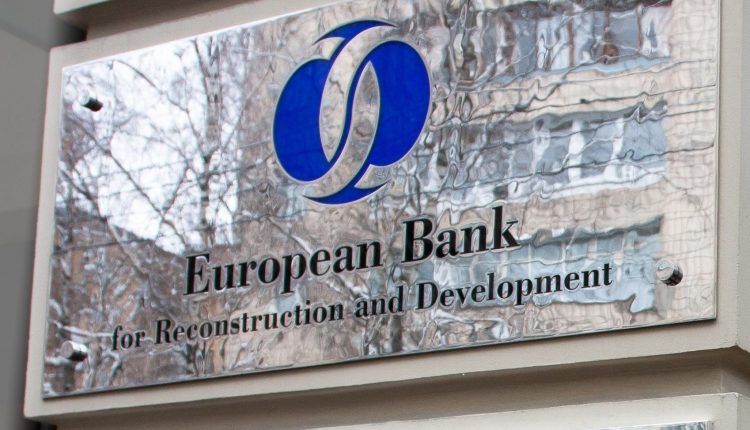Egypt Oks LIBOR transition to SOFR in EBRD deals
Egyptian President Abdel Fattah al-Sisi issued a decree no. 483 of 2023 approving the use of SOFR as a replacement of LIBOR in setting interest rates of the European Bank for Reconstruction and Development’s (EBRD) loan agreements. The decree was published in the country’s Official Gazette issue on Thursday.
According to according to Baker Mckenzie, the London Interbank Offered Rate or LIBOR has been widely used since the 1970s as a reference rate for various financial instruments. It is the rate of interest at which global banks lend to each other over short-term periods and it was also used as a benchmark for loans and savings across the world, according to Investopedia.
However, LIBOR came under the spotlight in 2012 after evidence emerged that some of the largest global banks were falsely inflating or deflating their rates to profit from trades, or to give a healthier picture of their credit quality. These manipulations drove financial regulators around the world to impose fines of over $ 9 billion and revising the basis of calculation of LIBOR, designed to make the process more objective and to minimise the risk of interference, according to the EBRD.
On 5 March 2021, the UK’s Financial Conduct Authority (FCA) declared that all LIBOR settings would either cease to be provided by any administrator or no longer be representative:
- immediately after the end of December 2021, for all sterling, euro, Swiss franc and Japanese yen settings, and the 1-week and 2-month US dollar settings; and
- immediately after the end of June 2023, for remaining US dollar settings (Overnight and 1, 3, 6 and 12 Months).
The Alternative Rates Reference Committee (ARRC) commended the UK FCA’s announcement and reminded the financial sector of previous US supervisory guidance “to cease entering into new contracts that use USD LIBOR as a reference rate as soon as practicable and in any event by December, 2021, in order to facilitate an orderly – and safe and sound – LIBOR transition.”
The EBRD had been using LIBOR as its key benchmark for all floating rate US dollar denominated bonds, swaps and loans. With the phasing out of LIBOR, the EBRD, like the rest of the market, is required to turn to alternative reference rates.
“We have already started issuing bonds and entering derivatives indexed to alternative reference rate and have updated reference rate conventions in the loan products we offer our clients.” EBRD said according to its official website.
Alternative reference rate to replace USD LIBOR
In 2017, the ARRC selected the Secured Overnight Financing Rate or SOFR as the rate to represent best practices in US dollar derivatives and financial markets. SOFR is based on observable repo rates, or the cost of borrowing cash overnight collateralised by US Treasury securities.
Because LIBOR represents the cost of funding of banks in the unsecured wholesale market for various tenors, including a term premium and credit-risk component which are not included in overnight RFRs, a Spread Adjustment reflecting this difference will need to be added to the LIBOR replacement rate in existing contracts, the EBRD added.



